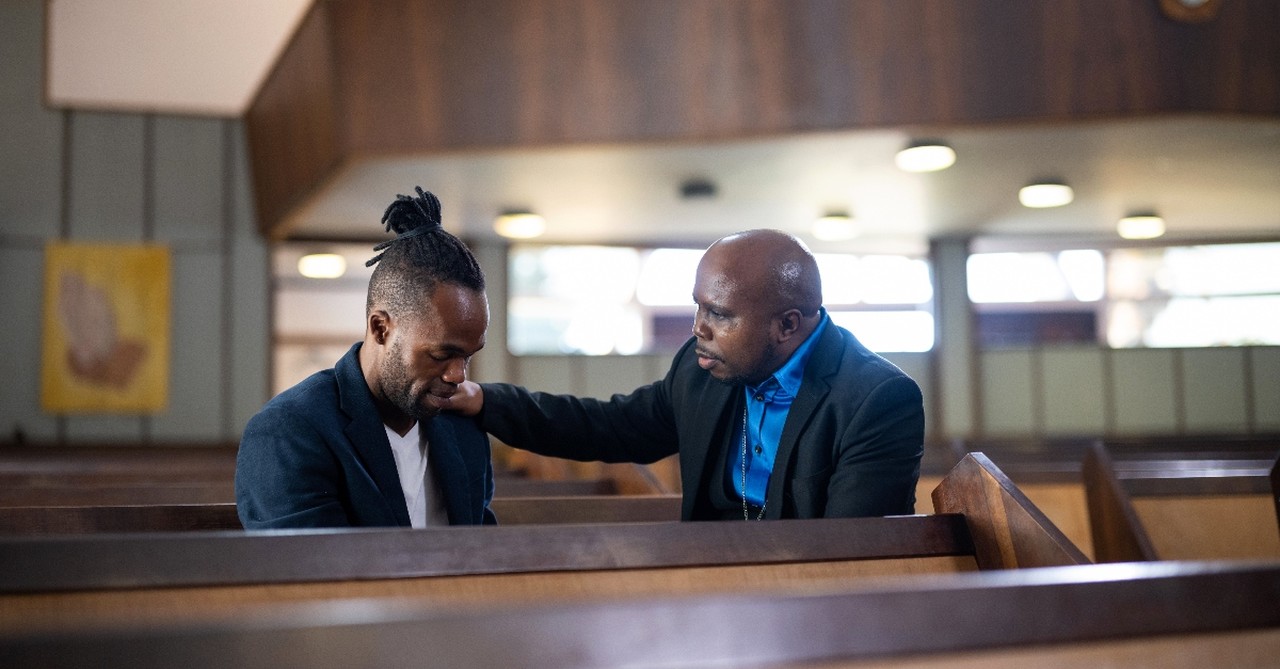3 Ways for Pastors to Promote Peace in Their Churches

Peace is a precious commodity, especially within the church. For those who attend for the first time, and those who have been members for years, the church is a sanctuary, a haven where people seek solace from the challenges of life. But as with any community, church congregations are not immune to the tumultuous winds of conflict.
It is part of the pastor’s sacred mission to guide their people towards an atmosphere of understanding, comfort, and faith in order to prepare them to continuously live in a world that gives them very little of something they truly long for — peace.
Photo Credit: ©Sparrowstock
The 3 Thieves of Peace

The 3 Thieves of Peace
SLIDE 1 OF 5
Before we address the solution, it's crucial to understand the nature of the issue at hand. What robs us of peace in our church communities? There are a multiplicity of reasons, and yet almost all of them revolve around three thieves: fear, worry, and doubt. These emotions seem to be deeply ingrained in the human heart, and yet are not seen as a part of God's good plan for human flourishing.
Fear may be the easiest to point out as something counter to God's desire for people. The most common command in the Bible is some version of "Don't be afraid." This isn't an irresponsible call to be nonchalant in the face of danger, but rather a reminder to trust God in all circumstances regardless of the outcome.
What this often looks like in the church is a lack of understanding. Fear often happens when people don't know the why, what, how, or when of things. They don't need to necessarily know all of these, but even one or two can be helpful. People fear what they don't understand, like leaders they don't know well enough, changes in the church without communicated purpose, or even the absence of someone they know and love in the church.
Worry, on the other hand, may be less obvious as a thief of peace. Yet, chronic worrying can lead to anxiety and stress, which can greatly impact one's mental health and interaction with others. It also distracts people from fully trusting in God and his plans for our lives. Jesus told His disciples not to worry in Matthew 6:25-34, and the Apostle Paul did the same with the church in Philippi:
Do not be anxious about anything, but in everything by prayer and supplication with thanksgiving let your requests be made known to God. And the peace of God, which surpasses all understanding, will guard your hearts and your minds in Christ Jesus. - Philippians 4:6-7
In the church, this is often experienced through a lack of gratitude. When leaders, volunteers, and people aren't thankful for the opportunities, people, gifts, time, etc., that God has given them, they often look for what God hasn't provided yet. People often have worries that will never happen, and yet they play on repeat in people's minds, robbing them of the gratitude they could be showing to God and others for what has already been provided.
Lastly, doubt, while seemingly innocent at first glance, can quickly become a major barrier to peace within the church. When members begin to doubt the intentions or actions of their leaders or fellow churchgoers, it can create tension and division among the congregation. Additionally, doubt in one's own faith can lead to feelings of uncertainty and insecurity about God.
When a wave of doubt grows within the church, it's often experienced through a lack of trust. People may question the vision and direction of the church, be on guard about the motives of others, or take charge themselves in ways God hasn't intended because they don't have confidence or faith in others. Leaders go rogue, volunteers don't follow, and factions within the congregation are created.
Every Pastor has experienced some version of each of these, and probably all of them at the same time. So, what can Pastors, the foremost leaders and shepherds in the church do to combat these?
Now that we have identified the three thieves, how can pastors actively work towards promoting peace within their churches? Here are three key ways:
Photo Credit: ©Pexels/Nathan Cowley
1. Give concise, empathetic communication before it's needed or asked for.

1. Give concise, empathetic communication before it's needed or asked for.
SLIDE 2 OF 5
Conflicts often arise because of misunderstandings or miscommunication. By encouraging clear and concise communication among church members, staff, and guests, Pastors can help address issues before they escalate and promote a culture of understanding and acceptance. The keys to clear and concise communicate are: Timing (before it's needed or asked for), approach (how you say it, not just what you're saying), and amount (not too much, not too little).
People need all of these. When Pastors give their staff, volunteers, and the church each of these three things in their communication, they can often alleviate fears before they grow. People won't always accept or go along with decisions, change, or a response to something pressing within the church; but they never will if we don't give them the opportunity to understand the why behind them.
Next Step: Think about something challenging you need to communicate to one person, a group of people, or even to your congregation. Write down the what, why, how, and when of the information you’re giving. Then, try to think of questions they may be asking or fears they may have that you can alleviate or at least address. Lastly, schedule a day and time to communicate before people have heard about it. Try it out on someone else before you communicate to the person/group of people to see what feedback they may have.
Photo Credit: ©iStock/Getty Images Plus/PixelCatchers
2. Foster a community of gratitude publicly and often.

2. Foster a community of gratitude publicly and often.
SLIDE 3 OF 5
By creating a culture of thankfulness and appreciation, Pastors can help combat worry and anxiety among their congregation. This can be done through regular expressions of gratitude during services, highlighting the contributions of individuals within the church, and reminding people to focus on what they have rather than what they lack.
To think about it another way, gratitude helps point people in the church to a severely overlooked Christian attitude: that of contentment. It is extremely challenging not to have peace when someone has everything they need. If they don't, we should work diligently to provide it for them. When they do, we need to help people realize how thankful we should be that God has provided. Saying thank you costs us nothing, but pays huge dividends when it comes to peace.
Next Step: Practice saying thank you to just one person in every meeting, on every Sunday morning, and in every training or opportunity you have with people in your church. Tell them what you appreciate about them, share a story of the impact they’ve had on you, or simply thank them for their service in front of others. You can and should also give credit to God for equipping them and inspiring them to serve, give, or however they’ve impacted people in the church.
Photo Credit: ©Sparrowstock
3. Stack up small wins before you go for a big one.

3. Stack up small wins before you go for a big one.
SLIDE 4 OF 5
You can't win people's trust if you haven't won at anything. This may seem like an odd one, but people often doubt church leadership or one another when they haven't seen results. How do they know we can teach well? How do they know we're good leaders? How do they know God is behind our church? Why should they invest their time, talent, and treasure?
There is nothing that will rob a church of peace faster than a lack of trust in their leadership. Nothing gets done, morale dips sharply, people gossip, and the church drifts into irrelevancy. But a church with leaders who others want and actively follow is one on the move. Big projects get funded, people love being there, they invite their friends, and the church booms into God-honoring momentum.
Leaders need to not just be honored in their position, but to earn people's trust by delivering on what they say they'll do. Quick, small wins help people invest their trust over time in the leadership of the church. Someday, leaders will need to ask for big things from their people, but before then, they need to deliver on a bunch of small things. Leaders who win big and small drive doubt in their leadership away, and help establish peace by being trustworthy, effective leaders their people want to follow.
Next Step: This one is a common but effective practice: make a list of four people you want to win within the next four weeks. Meet with them, listen to them, solve something for them, communicate with them.
Photo Credit: ©GettyImages/DGLimages
In Christ, Our Peace

In Christ, Our Peace
SLIDE 5 OF 5
Ultimately, as pastors and congregants, we are called to be peacemakers, and peacekeepers. Our peace with God through Jesus Christ compels us to share that peace with those around us. It's not a passive peace that avoids conflict, but an active peace that confronts it with love and seeks resolution through understanding, gratitude and trust.
The pursuit of peace within the church is not easy. It requires patience, perseverance, and a willingness to engage in difficult conversations, decisions, and leading people where they may not want to go. But as we look to the Prince of Peace for our example, we find that the rewards of peace—joy, unity, and a palpable sense of God's presence—are well worth the effort.
Peace in the church is not a static state. It is a continuous process, an ongoing transformation of hearts and minds. It is something bestowed on us by Christ, and it is our solemn duty to uphold it as Pastors by pushing away fear, worry, and doubt. May we, as leaders of the body of Christ, work tirelessly to cultivate peace within our churches, enabling people to rest in and seek the peace found only in Christ by being leaders who follow and uphold Christ’s commands ourselves.
Photo Credit: ©Getty Images/Drew Buzz
Kile Baker is a former Atheist who didn’t plan on becoming a Christian, let alone a Pastor, who now writes to try and make Christianity simple. Kile recently wrote a study guide to help people “look forward to and long for Heaven.” You can get one on Amazon here. He also writes at www.paperbacktheologian.com. Kile is the grateful husband to the incredibly talented Rachel, Dad to the energetic London and feisty Emma and Co-Lead Pastor at LifePoint Church in Northern Nevada. He single handedly keeps local coffee shops in business.
Originally published March 11, 2025.









